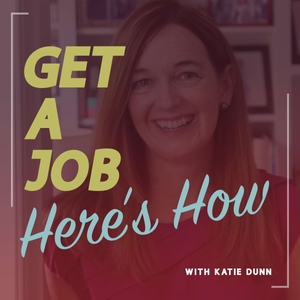
91. Um, Like, So: How Filler Words Can Create More Connected, Effective Communication
05/23/23 • 30 min
4 Listeners
We’re often advised not to use “um” or “uh”, or “so” and “you know” in our communication. But linguist Valerie Fridland might argue otherwise. “Language is about how we encode both the linguistic message and a social message,” she says. “Crutch words ... are really valuable and they have arisen to serve a need.”
In this episode of Think Fast, Talk Smart, Fridland sits down with host and strategic communications lecturer Matt Abrahams to discuss how and when we use "you know","so", and other filler words. For example, Fridland says, the way we use “um” varies greatly from how and we might use “uh.” And the use of “like,” while deplored by many, actually serves a linguistic function and can provide context and background for a listener.
She and Matt also discuss the social linguistic function of vocal fry and whether emojis have a place in business communication.
Fridland is a professor of sociolinguistics at the University of Nevada. She's an expert on the relationship between language and society and recently released a new book, Like Literally Dude: Arguing for the Good in Bad English.
Connect:
- Premium Signup >>>> Think Fast Talk Smart Premium
- Email Questions & Feedback >>> [email protected]
- Episode Transcripts >>> Think Fast Talk Smart Website
- Newsletter Signup + English Language Learning >>> FasterSmarter.io
- Think Fast Talk Smart >>> LinkedIn, Instagram, YouTube
- Matt Abrahams >>> LinkedIn
*********************************
Become a Faster Smarter Supporter by joining TFTS Premium.
We’re often advised not to use “um” or “uh”, or “so” and “you know” in our communication. But linguist Valerie Fridland might argue otherwise. “Language is about how we encode both the linguistic message and a social message,” she says. “Crutch words ... are really valuable and they have arisen to serve a need.”
In this episode of Think Fast, Talk Smart, Fridland sits down with host and strategic communications lecturer Matt Abrahams to discuss how and when we use "you know","so", and other filler words. For example, Fridland says, the way we use “um” varies greatly from how and we might use “uh.” And the use of “like,” while deplored by many, actually serves a linguistic function and can provide context and background for a listener.
She and Matt also discuss the social linguistic function of vocal fry and whether emojis have a place in business communication.
Fridland is a professor of sociolinguistics at the University of Nevada. She's an expert on the relationship between language and society and recently released a new book, Like Literally Dude: Arguing for the Good in Bad English.
Connect:
- Premium Signup >>>> Think Fast Talk Smart Premium
- Email Questions & Feedback >>> [email protected]
- Episode Transcripts >>> Think Fast Talk Smart Website
- Newsletter Signup + English Language Learning >>> FasterSmarter.io
- Think Fast Talk Smart >>> LinkedIn, Instagram, YouTube
- Matt Abrahams >>> LinkedIn
*********************************
Become a Faster Smarter Supporter by joining TFTS Premium.
Previous Episode

90. Rethinks: Brains Love Stories – How Leveraging Neuroscience Can Capture People’s Emotions
In this episode of Think Fast, Talk Smart, lecturer and podcast host Matt Abrahams sits down with David Eagleman, a neuroscientist and the host of the PBS series The Brain, to discuss why our brains are wired for storytelling and how new senses might impact our connection and communication with others.
“I’ve always been really interested in this idea of how we can pass information to the brain via unusual channels,” Eagleman says. “We’ve got our eyes or ears or fingertips and our nose, we’re very used to this and we sort of think these are fundamental, but of course, this is just what we’ve inherited from a long road of evolution ... It turns out you can push information in the brain in other ways.”
Connect:
- Premium Signup >>>> Think Fast Talk Smart Premium
- Email Questions & Feedback >>> [email protected]
- Episode Transcripts >>> Think Fast Talk Smart Website
- Newsletter Signup + English Language Learning >>> FasterSmarter.io
- Think Fast Talk Smart >>> LinkedIn, Instagram, YouTube
- Matt Abrahams >>> LinkedIn
*********************************
Become a Faster Smarter Supporter by joining TFTS Premium.
Next Episode

92. No Regrets: How to Take Risks in Your Communication, Relationships, and Career
“What people regret over time are things they didn't do. They didn't take that trip, they didn't ask that person out on a date. They didn't start that business,” says former political speech writer and best-selling author Dan Pink. “I think it's because we are slightly over-indexed on risk. We overstate the risk in many circumstances.”
On this episode of Think Fast, Talk Smart, strategic communications lecturer Matt Abrahams sits down with Pink to hear how we should all take more risks and how leaders can inspire others by focusing on the why instead of the how.
“There's almost incontrovertible evidence that sense of purpose is the most cost effective performance enhancer that organizations have,” Pink says.
They also discuss the power in taking breaks, which Pink considers part of performance, not a deviation from it. “What we know from many domains is that professionals take breaks. It's not that amateurs take breaks and the professionals don't, it's the exact opposite.”
Pink’s latest book is The Power of Regret, How Looking Backward Moves Us Forward.
Connect:
- Premium Signup >>>> Think Fast Talk Smart Premium
- Email Questions & Feedback >>> [email protected]
- Episode Transcripts >>> Think Fast Talk Smart Website
- Newsletter Signup + English Language Learning >>> FasterSmarter.io
- Think Fast Talk Smart >>> LinkedIn, Instagram, YouTube
- Matt Abrahams >>> LinkedIn
*********************************
Become a Faster Smarter Supporter by joining TFTS Premium.
If you like this episode you’ll love
Episode Comments
Featured in these lists
Generate a badge
Get a badge for your website that links back to this episode
<a href="https://goodpods.com/podcasts/think-fast-talk-smart-communication-techniques-27491/91-um-like-so-how-filler-words-can-create-more-connected-effective-com-30211965"> <img src="https://storage.googleapis.com/goodpods-images-bucket/badges/generic-badge-1.svg" alt="listen to 91. um, like, so: how filler words can create more connected, effective communication on goodpods" style="width: 225px" /> </a>
Copy







